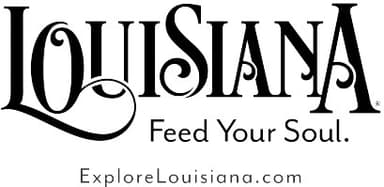Magic & Mystery
In the United States, Voodoo is synonymous with New Orleans. This powerful spiritual practice has been a deep part of New Orleans culture since the city’s earliest days. Voodoo-inspired imagery is found everywhere in New Orleans history books and the city we know today. Like many aspects of South Louisiana culture, New Orleans Voodoo evolved from a combination of African and European influences. While Voodoo has always been mysterious, some of its history is well documented.
Voodoo Originated in West African Culture

New Orleans Voodoo culture developed from West African religious practices that arrived locally via the city’s slave market. These practices emphasized an interpretation of the intangible world that focused not on a single God, but on a vast network of energetic spirits. Voodoo asserts that humans can interact and connect with these spirits through rituals such as dance, music, and chanting. Congo Square, (located in the Treme neighborhood’s Armstrong Park), was an early ceremonial site for New Orleans Voodoo. The Square is still an important cultural gathering place today!
As New Orleans Voodoo culture grew in popularity, both slaves and free people of color fused their African religious practices with the Creole French Catholicism that dominated New Orleans society in the 18th and early 19th centuries. In fact, New Orleans Voodoo is sometimes known as Voodoo-Catholicism. When the Haitian government was overthrown by slaves in 1791, numerous Haitian refugees immigrated to the Crescent City and introduced their Voodoo practices, thus further influencing the New Orleans Voodoo culture.
The Most Famous New Orleans Voodoo Queen Was Marie Laveau

A Voodoo Queen presides over major Voodoo ceremonies. Marie Laveau (1801-1881) is the most famous Voodoo Queen in New Orleans history. Laveau, a resident of the French Quarter, was highly regarded for her spiritual and practical acumen. Locals from all over town sought after her for a wide range of services, including clairvoyance, healing, and financial guidance. Her residence on St. Ann Street was adorned with various spiritual objects such as altars, candles, and Saints’ images. Laveau was a faithful Catholic who attended services at St. Louis Cathedral. She was laid to rest in St. Louis Cemetery No. 1.
New Orleans Voodoo Celebrations Still Happen

Today, New Orleans Voodoo lives on as a mostly private practice. However, those who wish to connect with New Orleans Voodoo culture and Marie Laveau in a more public space should take note of St. John’s Eve in late June. This celebration observes both St. John the Baptist’s birthday (June 24th) and the Summer Solstice.
Marie Laveau fittingly held the earliest New Orleans celebrations of St. John’s Eve along Bayou St. John. Today, local Vodou priestess Sallie Ann Glassman presents an annual St. John’s Eve ritual at the International House Hotel in the CBD. International House’s 2023 St. John’s Eve event will take place on Wednesday, June 22nd from 6-8 PM.
Learn More on a French Quarter Walking Tour
Voodoo is just one of many powerful spiritual traditions that have influenced New Orleans culture. If you’re looking for an unforgettable adventure, a French Quarter tour is the way to go. Explore the vibrant and mysterious culture of New Orleans, as you venture on a mystical journey through its cobblestone streets. Learn about the fascinating history of Voodoo and other powerful spiritual traditions that have left an indelible mark on this amazing city.
Take in the stunning architecture, lush gardens, and bustling markets that will make your French Quarter walking tour an unforgettable one. With local tour guides leading the way, you’ll have the opportunity to explore landmarks, and learn about the city’s famous cemeteries. So what are you waiting for? Book your French Quarter tour now and let the magic of the Big Easy take hold of your senses






